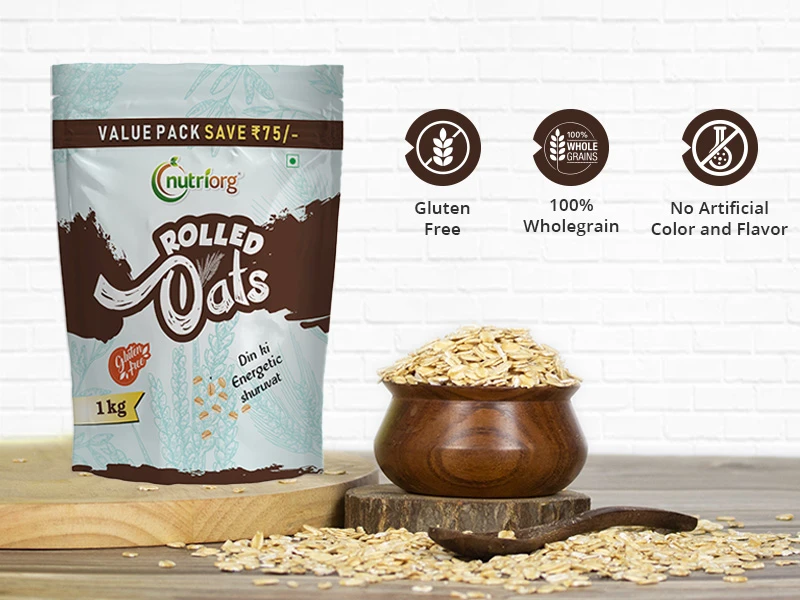The organic and gluten-free market has witnessed a significant surge in recent years, driven by the growing awareness of health-conscious consumers. As consumers increasingly seek out healthier alternatives, the demand for certified organic gluten-free oats has skyrocketed. In this blog, we\'ll delve into the latest trends and explore the benefits of incorporating certified organic gluten-free oats into your diet.
The Growing Demand for Gluten-Free Products:

Gluten-free products have become a staple in many modern households, with the global market projected to reach $7.5 billion by 2025. This growth can be attributed to the increasing prevalence of gluten intolerance, celiac disease, and non-celiac gluten sensitivity. Moreover, consumers are becoming more aware of the potential health risks associated with gluten consumption, leading to a shift towards gluten-free alternatives.
The Rise of Certified Organic Products:

The organic market has also experienced significant growth, with sales reaching $55 billion in 2020. Consumers are willing to pay a premium for certified organic products, citing concerns over pesticide use, environmental sustainability, and the importance of supporting environmentally conscious farming practices. Certified organic products have become a symbol of quality, purity, and transparency, resonating with consumers who prioritize their health and well-being.
The Perfect Union: Certified Organic Gluten-Free Oats:

When it comes to oats, the demand for certified organic gluten-free options is on the rise. Oats are a staple in many diets, and the addition of a gluten-free certification ensures that consumers with gluten intolerance or sensitivity can enjoy this nutritious grain without worrying about adverse reactions. Certified organic gluten-free oats offer a unique combination of benefits, including:
Higher nutritional value: Organic oats are grown using natural farming practices, which result in a higher nutrient content compared to conventionally grown oats.
Gluten-free guarantee: The gluten-free certification ensures that the oats are processed in a facility that meets strict gluten-free standards, providing peace of mind for consumers with gluten-related disorders.
Sustainable farming practices: Certified organic farms prioritize environmental sustainability, reducing the carbon footprint and promoting eco-friendly practices.
The Benefits of Incorporating Certified Organic Gluten-Free Oats into Your Diet:

Incorporating certified organic gluten-free oats into your diet can have numerous health benefits, including:
Increased fiber intake: Oats are an excellent source of dietary fiber, which can help promote digestive health and support healthy blood sugar levels.
Improved heart health: The soluble fiber in oats can help lower LDL cholesterol levels, reducing the risk of heart disease.
Supports healthy weight management: Oats are high in protein and fiber, making them a nutritious addition to a weight management diet.
Conclusion:
The demand for certified organic gluten-free oats is on the rise, driven by consumers who prioritize their health and well-being. As the market continues to grow, it\'s essential for consumers to stay informed about the benefits of certified organic gluten-free oats. By choosing certified organic gluten-free oats, consumers can enjoy a nutritious and sustainable food option that supports their health goals while promoting environmentally conscious farming practices.
What to Look for When Buying Certified Organic Gluten-Free Oats:
Certification: Look for the USDA Organic or European Union Organic certification logo to ensure that the oats meet strict organic standards.
Gluten-free certification: Ensure that the oats have a gluten-free certification from a reputable organization, such as the Gluten-Free Certification Organization (GFCO) or the Celiac Support Association (CSA).
Processing: Opt for oats that are processed in a dedicated gluten-free facility to minimize the risk of cross-contamination.
At Nutriorg, we\'re committed to providing our customers with the highest-quality certified organic gluten-free oats, sourced from trusted farmers and processed in a dedicated gluten-free facility. Join the movement towards a healthier, more sustainable food system by incorporating certified organic gluten-free oats into your diet today.



